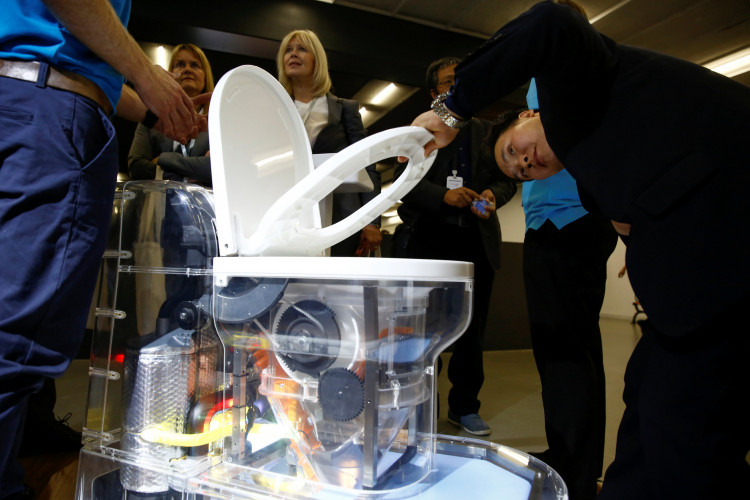The sanitation solutions technology that could transform human fecal matters into by-products like clean water and fertilizer by eliminating harmful pathogens from the feces could open a nearly 6-billion-dollars worth of business opportunity by 2030.
This is according to Bill Gates who launched the Reinvented Toilet Expo in Beijing on Nov. 6 with the China Council for the Promotion of International Trade and the China Chamber of International Commerce.
The reinvented toilet technology, where human excrement could be flushed without going to the sewers or water lines, could open an even bigger return on investment for all companies that would pioneer the safe sanitation initiatives globally. A study from the World Health Organization estimated the technology to generate on average an economic return of $5.50 for every dollar invested.
A separate study from the Boston Consulting Group found that companies venturing early in the new non-sewered sanitation industry could enjoy massive untapped opportunities. The reinvented toilets could also pave the way for a larger sanitation sector that in return could provide more jobs and services in support of the new industry.
In his speech during the launching of the Reinvented Toilet Expo in Beijing, Gates said there is a huge market opportunity to meet the sanitation needs of 4.5 billion people worldwide. He said the initial demands for the reinvented toilet will come from the education sector and the real estate market, particularly from apartment and condominiums.
Gates said it is no longer a question if companies can reinvent the toilet or incorporate innovation with the existing sanitation systems. Instead, the question is how the market for this technology can quickly grow.
As companies explore ways on how to ride the reinvented toilet revolution, the national and local governments should also act quickly in implementing policies and regulations that would encourage innovative sanitation service models. These policies shall govern both the private and public sector that would venture in the sanitation solutions technology.
Gates underlined China's toilet revolution, saying its action plan for accelerating progress on safe sanitation demonstrated the country's potential as a launch market for none-sewered sanitation solutions.
At the expo, Chinese companies - Clear, CRRC, EcoSan - announced reinvented toilets that were able to kill pathogen from the human excrement. The companies also announced small-scale waste treatment plants called the omni-processors which are now available for sale to municipal and private entities.
Other companies that announced similar developments where Sedron Technologies from the United States; Eram Scientific, Ankur Scientific, Tide Technocrats from India; and SCG Chemicals from Thailand.
LIXIL, headquartered in Japan, on the other hand, is planning to launch a household-level reinvented toilet.
The World Bank, the Asian Development Bank, and the African Development Bank, meanwhile, announced investments that could amount to as much as $2.5 billion in City-Wide Inclusive Sanitation projects. Under these projects, reinvented toilets will be distributed to the poorest neighborhoods.





